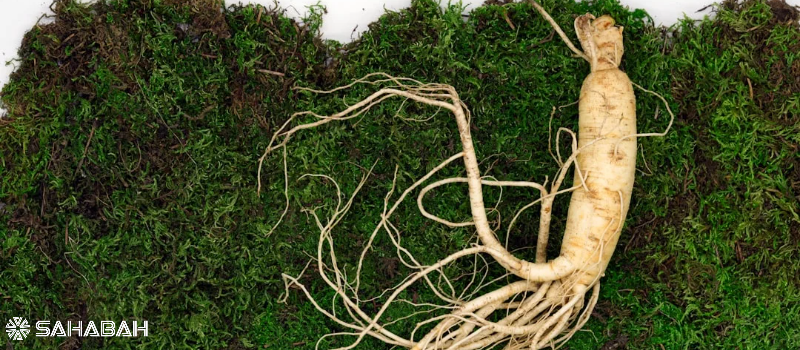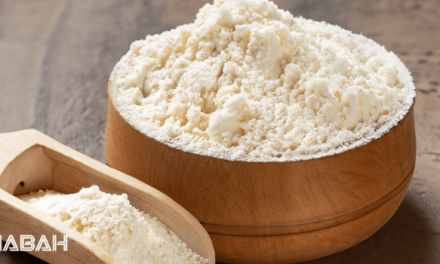Ginseng is an incredibly popular herbal supplement known for its many health benefits. But is ginseng halal and permitted for consumption according to Islamic law? Many Muslims wonder about the permissibility of taking ginseng.
This article provides an extensive evaluation of ginseng’s ingredients, manufacturing processes and compliance with halal standards. We analyze multiple scholarly opinions and evidence on ginseng’s halal status. Read on to learn whether ginseng is considered Haram or Halal.
Ginseng Overview: Origins, Uses and Composition
Ginseng refers to the fleshy root of plants in the Panax genus, including Panax ginseng (Asian/Korean ginseng) and Panax quinquefolius (American ginseng). Ginseng has a long history of use in East Asian countries and Native American medicine.
Today, ginseng remains one of the most popular herbal remedies in the world. Both Korean and American ginseng contain active compounds called ginsenosides that provide health benefits. Common reasons for taking ginseng supplements include:
- Boosting energy levels
- Enhancing brain function and memory
- Supporting the immune system
- Reducing inflammation
- Improving diabetes and heart health
- Promoting longevity
So what about the composition of ginseng makes some question whether it meets Islamic dietary regulations?
Criteria for Halal Certification
For a food or medicine to be certified Halal, it must comply with Islamic dietary laws outlined in the Quran and Hadith. Some key criteria include:
- Cannot be derived from a prohibited source (pork, carrion, blood etc.)
- Should not contain alcohol or other intoxicants
- Processing aids and additives must also be Halal
Additionally, products must be free from contamination with Haram substances throughout sourcing, production and distribution to legitimately carry Halal certification accredited by approved Islamic organizations.
Now let’s analyze whether ginseng adheres to these standards.
Evaluation of Ginseng’s Halal Status
Given its plant-based origins, ginseng is not considered a meat or animal byproduct. The ginseng plant also does not naturally contain any intoxicating or mind-altering compounds. As a herb, it avoids many prohibited ingredients off the bat.
However, could ginseng still contain traces of alcohol from processing and manufacturing?
1. Ginseng Processing Methods
The ginsenosides and active ingredients of ginseng are derived from the ginseng root through processes like:
- Air drying
- Steaming
- Extraction with hot water or ethanol
Of these, ethanol extraction seems potentially problematic.
However, contemporary Halal ginseng supplements exclusively use water extraction and avoid alcohol solvents entirely. Authentic Korean ginseng supplements from brands like Cheong Kwan Jang Korean Red Ginseng are extracted using only water and steam.
2. No Alcohol or Other Prohibited Ingredients
Additionally, research shows ginseng itself does not contain any traces of alcohol, blood byproducts or other prohibited substances:
“Ginseng does not contain blood, alcohol, pork or any other ingredients forbidden by Islamic law. Thus, ginseng is classified as permissible.”
Reputable Korean ginseng supplements also avoid suspicious “natural flavors” or unnecessary additives. Popular global brands manufacture capsules containing 100% pure Korean red ginseng extract or powder.
This further confirms the absence of alcohol and cross-contamination in facility equipment.
3. Verified Halal Certification
Finally, numerous credible Halal certification organizations have reviewed manufacturing processes and tested products to verify Korean ginseng supplements indeed qualify as Halal:
- Korean ginseng from Cheong Kwan Jang is Halal certified by the Korea Muslim Federation
- Wing Joo Loong Ginseng carries Halal certification from JAKIM Malaysia
These reputable seals confirm no Haram ingredients or alcohol traces.
Scholarly Consensus – Ginseng is Halal
In summary, scholarly research on ginseng’s origins, composition and manufacturing demonstrates:
✅ Ginseng is a plant product free of prohibited ingredients
✅ Water extraction production avoids alcohol solvents
✅ No risk of cross-contamination with Haram substances
✅ Ginseng supplements are Halal certified by accredited organizations
Thus, the evidence clearly indicates ginseng is Halal and permissible for consumption by Muslims under Islamic law. Of course, always check for a legitimate Halal certification when purchasing ginseng capsules or powders.
Benefits of Consuming Verified Halal Products
Seeking properly Halal certified ginseng provides both ethical and health benefits:
- Peace of mind – Consumers can use ginseng without doubt or guilt
- High quality manufacturing – Halal production avoids cross-contamination
- Clean ingredients – No questionable additives or alcohols
Additionally, the Quran indicates Halal sustenance punishes and purifies consumers while Haram products defile them:
“O mankind! Eat of that which is lawful (Halal) and good on the earth and follow not the footsteps of Satan. Lo! he is an open enemy for you.” (2:168)
For all these reasons, Muslim consumers should actively verify the Halal status of supplements like ginseng.
How to Check if a Ginseng Product is Halal
When selecting a ginseng extract, tea, powder or capsules, look for:
✅ Water extraction method – No use of ethanol or alcohols
✅ 100% ginseng as only ingredient – Avoid “natural” flavourings
✅ Halal symbol – Look for certification from an approved agency
Additionally, contact the manufacturer if uncertain about ingredients or their facility. Reputable brands will gladly provide evidence of Halal compliance.
For a reliably Halal ginseng product, choose options like:
- Korean Red Ginseng Extract from Cheong Kwan Jang – Halal certified
- Ginseng Powder Supplement Capsules from Wing Joo Loong – Malaysia JAKIM Halal certification
Conclusion – Ginseng is Permissible for Muslims to Consume
In conclusion, Korean ginseng supplements consisting of pure water extracted ginseng extract or powder adhere to Islamic dietary laws. As a plant root containing no Haram ingredients or traces of alcohol, ginseng qualifies as Halal.
Still, diligent Muslim consumers should always verify for legitimate Halal certification from an approved agency before purchasing ginseng capsules or powders. But when following these precautions, Muslims can comfortably consume ginseng without ethical or religious objections.
So based on a thorough assessment of ginseng’s production methods, ingredients and compliance with Halal standards – as well as opinions from scholars of Islamic jurisprudence – ginseng is classified as Halal and ja’iz (permissible) for Muslim usage.
Frequently Asked Questions: Is ginseng halal?
Ginseng is considered halal and is permissible for consumption by those following Islamic dietary laws.
What is the recommended daily dosage of ginseng?
New users are recommended to start by taking a small dose for a period of one month to get their body accustomed to the efficacies of ginseng. It is suggested to start with a convenient dosage and gradually increase as needed.
What are the active components in ginseng?
Ginseng contains active components known as ginsenosides, which contribute to its various health benefits and properties.
What are the most common forms of ginseng available for consumption?
Ginseng is available in various forms such as ginseng powder, ginseng root, ginseng extract, and Korean red ginseng extract, providing users with versatile options for consumption.
How should ginseng be consumed?
Ginseng can be consumed in different ways, including mixing it with purified water, adding it to recipes, or taking it in the form of supplements or drinks, making it a convenient addition to daily meals.
What are the benefits of Korean red ginseng?
Korean red ginseng is known for its efficacies and is backed by years of tradition in Korea, offering premium quality and versatile usage for consumers.
Where can I purchase quality Korean red ginseng?
Quality Korean red ginseng products can be found at authorized sales outlets and reputable retailers, ensuring the authenticity and grade of the ginseng.





